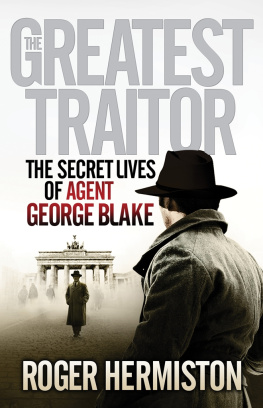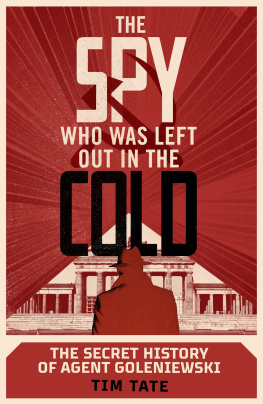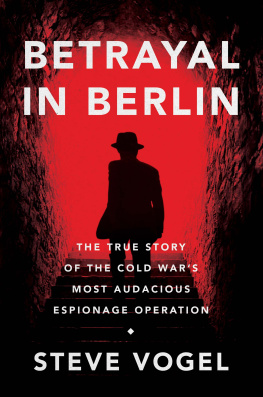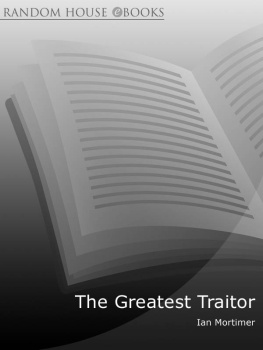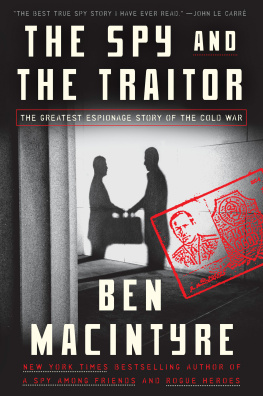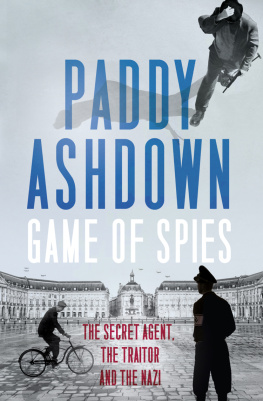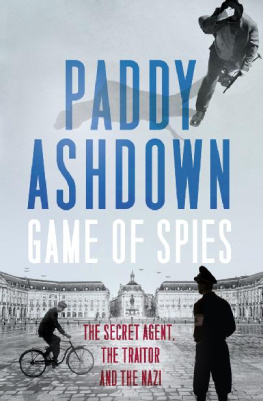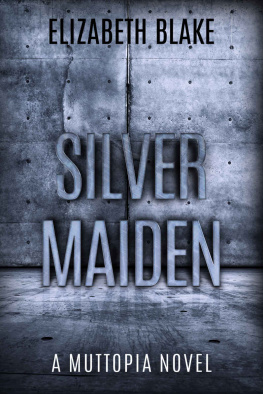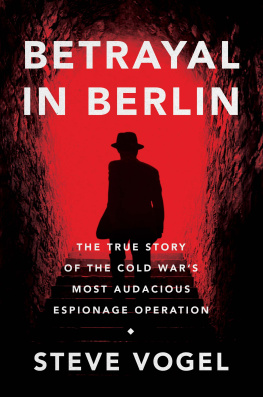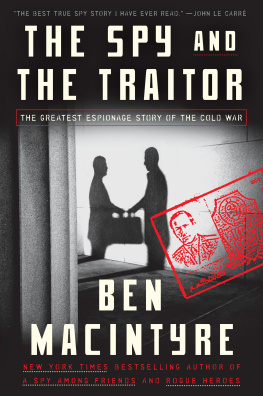The Greatest Traitor

To Eileen
F or simplicitys sake, I have described the Soviet Unions security and intelligence organisation as the KGB throughout the whole of this book. It is the name, the acronym, most familiar to the general reader and in any case, the functions of the organisation remained constant from 19171991. However, at various times in its history it has been called the Cheka, NKVD, OGPU, NKGB, MGB and MVD.
Likewise on the British side, I have opted to refer to SIS, the Secret Intelligence Service, as opposed to MI6, the title which is perhaps more familiar to twenty-first century readers. SIS was the name used from around 1920 onwards, and is enshrined in statute today. MI6 became a flag of convenience for SIS in the late 1930s, and entered common parlance from the Second World War onwards.
M y interest in George Blake was first stirred on Friday, 17 September 1999, when I came into the offices of BBC Radio 4s Today to edit the following mornings programme.
Remarkably, I had not one but two spy stories on the running order that evening: it was as if the Cold War had never gone away. The breaking news concerned a lecturer from a northern university who had been exposed for his work as a recruiting agent for the Stasi the East German secret police in the late 1970s. My team started putting in the calls to mould the revelation into our 8.10 a.m. lead the slot on the programme reserved for the most significant, compelling story. While they set to work calling the Foreign Office and assorted espionage watchers, I settled back to consider our other spy tale.
I had in my hands the tape of an interview our foreign affairs reporter in London had conducted over the telephone earlier that day, on the line to Moscow. It was an undoubted coup: apart from a brief flurry of activity around the time of his autobiography, a decade earlier, the Cold War traitor George Blake was not known for speaking to the Western media.
As I listened, I found myself completely absorbed by his voice, which was so redolent of the 1950s, a time when it seemed that educated men spoke in more assertive, rounded fashion. I knew little about Blake then beyond the bold headlines of his life that he was a Soviet spy who had sold a nations secrets and been sentenced to an incredible forty-two years in jail; that he had made a daring escape over the walls of Wormwood Scrubs and all the way to the Soviet capital.
That day we wanted to speak to Blake in his role as Cold War veteran, seeking his reaction to the unmasking, earlier that week, of 87-year-old Melita Norwood as a Soviet agent of some forty years standing. She had passed her KGB controller information about a top-secret project connected with the building of Britains atomic bomb. In clipped, accented tones those of a foreigner who has absorbed the English language well and can speak it almost too perfectly Blake was effusive in his praise for the suburban pensioner, whom The Times had smartly dubbed The Spy Who Came in From the CO-OP. Bracketing her with the atomic spies Donald Maclean, Klaus Fuchs, Morris Cohen, et al. Blake told his interviewer: They were moved by higher considerations, because they firmly believed they were helping to save the world from an atomic holocaust, and so I think we all ought to be very grateful for what they had done.
Asking his British audience to be grateful to these characters was one thing; trying to persuade them that a member of the infamous Cambridge Five spy ring might be worthy of canonisation was quite another: I have known and feel privileged to have known a number of the atomic spies, and theyre very good friends of mine, starting with Donald Maclean, and they are people of the highest character, indeed in some cases approaching saintliness; I dont hesitate to say that.
Ten years after the Berlin Wall had been pulled down, Blake was still reluctant to budge from his ideological fastness. The failure of the Soviet Union, of Communism, was the fault of mankind not the system itself. Human beings are still too imperfect to build the perfect society, was his assessment. It would arrive eventually, he maintained, but not for decades, even centuries.
Sure and unrepentant, the interview was certainly the most powerful item we had for the programme but, instead of giving it the hallowed 8.10 slot, I placed it at 8.40 a.m., separating it from the newsier Stasi story. My editor Rod Liddle whose instincts were invariably correct on these matters rightly berated me afterwards for that decision.
In the coming years, I became fascinated with Blake and, as I learned more about him, I discovered an intriguing, flawed character, whose life had been played out against and often at the heart of some of the major events of the twentieth century. Twelve years later, once I had resolved to write about him, it was naturally incumbent on me to approach him for his version of the story. I telephoned him on the eve of his birthday in November 2011.
He had no warning of my call, despite a number of e-mails and letters which had all mysteriously gone astray. Most politely, he declined to be interviewed. He had written his own autobiography, and several other books, and said he had nothing more to add to what was already on record. He told me he felt in good health for his age, although his eyesight was steadily fading, to the point where he could no longer read or write, except to sign his name. For a man with a passion for literature and languages, this must be a bitter degeneration.
What he did agree to do was answer by e-mail, with his son acting as intermediary, some specific questions of fact about his life. The arrangement worked very smoothly for a number of months, until I began to probe the roles played by his various KGB handlers in the 1950s. Then the answers dried up.
This, then, is no authorised biography, but, through fresh interviews with those who knew Blake, previously unseen papers from his trial, and valuable material in British and German archives, I have been able to piece together what I hope is an authentic and revealing portrait of an astonishing life lived through remarkable times.
There has been no assistance from the present-day Secret Intelligence Service (SIS). Blakes file like all the others remains under lock and key, and the Service, unlike MI5, is not a participant in the regular Freedom of Information process. In 2010, it did commission Professor Keith Jeffery to write a history of its activities up to 1949, and it has released a limited amount of other material for biographies of important intelligence figures. But by important, they mean, of course, heroic and worthy, and Blake is not considered either, hence the story of his treachery is something the Service would rather forget. One very senior former officer I contacted for assistance replied tersely that he had absolutely no enthusiasm for facilitating books about George Blake (of whatever type). I became used to this kind of response.
Despite that reaction, outside the intelligence community, there is an enduring fascination with Blake. Indeed, as I began to delve deeper into his life, I discovered that some of our leading film directors, novelists and playwrights had all trodden the path before me.
Blake inspired films by both John Huston and Alfred Hitchcock. The formers 1973 thriller The Mackintosh Man features the escape from prison of a KGB mole (played by Ian Bannen), alongside Paul Newman as a British intelligence officer. Hitchcocks The Short Night, had it ever been made, would have featured a British spy and traitor, Gavin Brand, escaping over the wall from Wormwood Scrubs prison. The screenplay had all the hallmarks of a classic Hitchcock thriller, even featuring a

